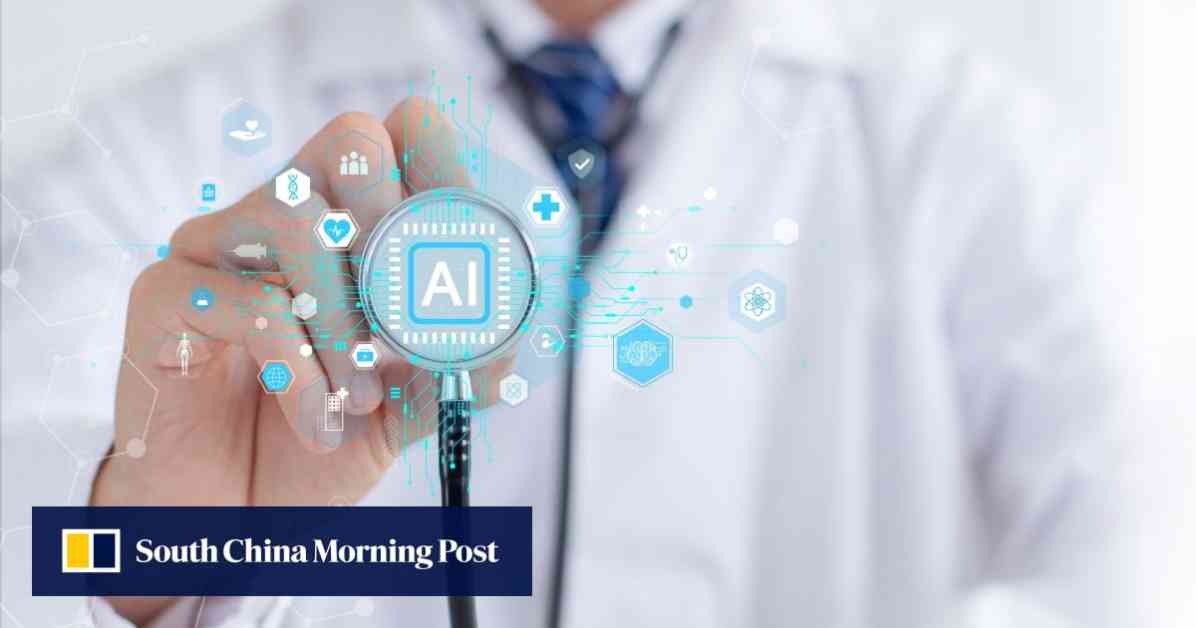The buzz surrounding China’s DeepSeek chatbot has transcended its initial entertainment value, making waves in the medical field and prompting more individuals in China to rely on this artificial intelligence (AI) tool for medical diagnoses. However, this shift has sparked a debate among the public, raising concerns about the role of AI in critical medical decisions.
A recent viral video captured the frustration of a doctor who discovered that a patient had questioned his treatment after consulting DeepSeek. The doctor, visibly flustered, recounted how he had to double-check his medical guidebook only to realize that the AI model had been updated, highlighting his mistake. This incident is not an anomaly, as China continues to champion AI innovation, leading to increased interactions between the public and AI entities in various sectors, including healthcare.
Impact on Healthcare Professionals
Healthcare professionals are grappling with the growing influence of AI tools like DeepSeek in their daily practice. While AI can enhance diagnostic accuracy and streamline processes, it also poses challenges to traditional medical practices and expertise. The anecdote of the doctor caught off guard by the patient’s use of DeepSeek underscores the evolving dynamics between human healthcare providers and AI technologies. As more patients seek second opinions from AI models, healthcare professionals must adapt to this new reality and find ways to collaborate effectively with these digital counterparts.
In a rapidly evolving healthcare landscape, the integration of AI technologies raises questions about the ethical implications of relying on algorithms for medical decision-making. The scenario depicted in the video serves as a poignant reminder of the need for continuous learning and adaptation in the face of technological advancements. Healthcare providers must strike a delicate balance between leveraging AI tools for improved patient care and preserving the human touch that defines compassionate healthcare delivery.
Public Perception and Trust
The widespread adoption of AI in various facets of society, including healthcare, has sparked a broader conversation about public trust in these technologies. As AI becomes more ingrained in everyday interactions, individuals are grappling with questions of reliability, accountability, and the potential implications of AI-driven decisions. The doctor’s candid reaction to being challenged by a patient using DeepSeek captures the essence of this evolving trust dynamic, where human expertise is put to the test against AI algorithms.
The intersection of AI and healthcare illuminates the complex interplay between technological innovation and human judgment. While AI models like DeepSeek offer unprecedented access to medical information and diagnostic tools, they also raise concerns about algorithmic bias, data privacy, and the erosion of the doctor-patient relationship. Navigating these nuanced considerations requires a nuanced approach that values both the capabilities of AI and the irreplaceable role of human empathy and expertise in healthcare delivery.
As China’s fascination with AI-driven solutions continues to grow, the ongoing dialogue around the role of AI in healthcare underscores the need for thoughtful reflection, collaboration, and innovation. By embracing the potential of AI while upholding the values of patient-centered care and ethical practice, healthcare professionals can navigate this transformative landscape with confidence and compassion.



























